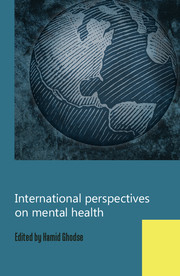Republic of Niger
from Africa
Published online by Cambridge University Press: 02 January 2018
Summary
The Republic of Niger is a large, landlocked west African country. Around 80% of its vast land mass (1 300 000 km2) is in the Sahara Desert. Its neighbours are Mali, Algeria, Libya and Chad to the north, and Nigeria, Benin and Burkina Faso to the south. The country came under French rule in the 1890s and gained its independence in 1960, but development has been slowed by political instability, lack of natural resources and drought. In 1999, voters overwhelmingly approved a new constitution, allowing for multi-party elections, which were held later that year. An ongoing rebellion in the north makes access to much of the country difficult.
There is a wide diversity of peoples, including nomadic tribes in the north (the Tuareg and Fulani) and settled groups mainly in the south (the Hausa, Zarma and Songhai as well as many others). The majority of the population are Muslim but animist beliefs and ancestor worship are common.
Niger is one of the world's poorest countries, with a gross national income of US$280 per capita in 2007 (World Bank, 2007). The population is estimated at 14.2 million, over half of whom are under 15 years of age (UNICEF, 2008). The majority are subsistence farmers and over 60% of people live on less than US$1 a day. Most of the national export income is derived from uranium mining and cattle-rearing.
Health indicators for Niger are poor. The average life expectancy at birth is 58 years for men and 56 years for women. Niger has the highest fertility rate in the world, with an average of 7.2 births per woman, but infant mortality is also extremely high, and one in four (253/1000) children die before the age of 5 years (UNICEF, 2008). In the year 2000, total health expenditure as a percentage of gross domestic product was 3.7%. Per capita total expenditure on health is US$22, with the government providing US$9 of this total.
Mental health services
Traditional medicine is the only option available for the majority of the population when they encounter mental or neurological health problems, as there are few modern services outside of the capital city, Niamey. Widely held beliefs that mental illness has a spiritual cause, low levels of literacy, huge distances and poverty are all factors that compound poor access to orthodox psychiatric services.
- Type
- Chapter
- Information
- International Perspectives on Mental Health , pp. 37 - 40Publisher: Royal College of PsychiatristsPrint publication year: 2011



